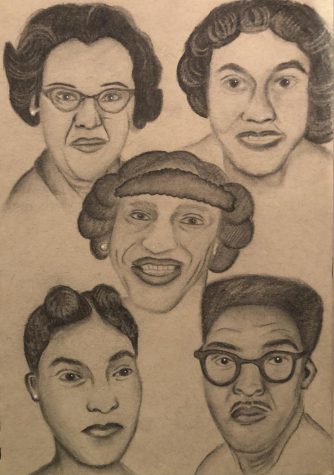The Roots of Black History Month
February 25, 2022

Throughout the month of February, the history of African Americans as well as their achievements and contributions to this nation are celebrated. We honor their rich culture and heritage, sacrifices, adversities, and triumphs. The theme of Black History Month for the year of 2022 is “Black Health and Wellness”, which highlights African American doctors and health professionals, this theme seemingly fitting considering the state of the world these past two years.
The face behind the creation of Black History Month belongs to none other than historian and scholar, Carter G. Woodson. Woodson was the son of former slaves. His journey to success was arduous and had worked on his family farm and coal mines while pursuing his education in order to help his family financially. Woodson’s desire for education was evident– he taught himself and mastered basic school subjects before he attended high school at the age of 20. He obtained his diploma in two years. Woodson went on to work as a teacher before obtaining his bachelor’s degree from Berea College, his master’s degree from the University of Chicago, and his doctorate at Harvard University– the second black man in history to do so. One day, Woodson was barred from conferences held by the American Historical Association, despite paying a membership fee. Woodson then strongly believed that the historian occupation was not interested in Black History and instead it was “overlooked, ignored, and even suppressed by the writers of history textbooks and the teachers who use them.”
Thus, his journey to bring African American history to the mainstream began. Woodson created a separate institution in 1915, The Association for the Study of Negro Life and History, with funding from philanthropic foundations. Then the very next year he started the Journal of African American History, which remains in print to this day.
Woodson firmly believed that black history needed to be celebrated and that this celebration would inspire future generations to achieve even more. In February of 1926, Woodson launched the first celebration of many, but this time it was known as Negro History Week. The month of February was chosen as it coincided with the birthdays of both Frederick Douglass and Abraham Lincoln. It helped spread awareness and helped to boost the celebration of black history, and even after Woodson’s death, black students rallied to have black history be taught more. Given its mass popularity and the amount of support behind it, the week turned to a month in 1970 as proposed by students and educators at Kent State University. Then in 1976, after meeting with civil rights leaders such as Bayard Rustin, Dorothy Height, and Jesse Jackson, President Ford issued a statement on the importance of Black History Month. He stated, “The last quarter-century has finally witnessed significant strides in the full integration of black people into every area of national life,” and “In celebrating Black History Month, we can take satisfaction from this recent progress in the realization of the ideal envisioned by our founding fathers. But, even more than this, we can seize the opportunity to honor the too-often neglected accomplishments of Black Americans in every area of endeavor throughout our history.”
Through this celebration we are able to recognize important figures in both African American history and the history of our nation. Take Pulitzer prize winning poet, Gwendolyn Brooks who through her work examined and spotlighted the lives of ordinary black people during the fight for civil rights. She was also named the Poet Laureate of Illinois in 1968 and her most notable works include, A Street in Bronzeville, Annie Allen, In the Mecca, and The Bean Eaters.
Another notable figure includes Marsha P. Johnson, a black trans woman and LGBTQ+ activist, whom co-founded STAR, an organization that helped to house queer homeless youth. She was also a prominent figure in the Stonewall Uprising of 1969. Bayard Rustin was an activist who not only had to battle prejudice for his race but also his sexuality, however he prevailed and continued to fight for socialism, nonviolence, civil rights, and gay rights. Rustin worked in close proximity with Dr. Martin Luther King Jr. and was the organizer of the legendary March on Washington. He planned it in less than two months.
Lastly in honor of this year’s theme of Black History Month; Rebecca Lee Crumpler was an American physician, nurse, and author born in Delaware in 1831. She attended and graduated from the New England Female Medical College. She is hailed as the first African American woman to become a doctor of medicine in the United States.
The celebration of black culture, history, and achievements is an important one. Here in Downey, one event being held in honor of Black History Month in Downey is the Smarty Pants Storytime at the LA County Library Administrative Office on Imperial Hwy.




